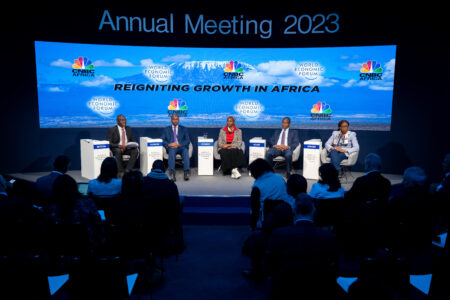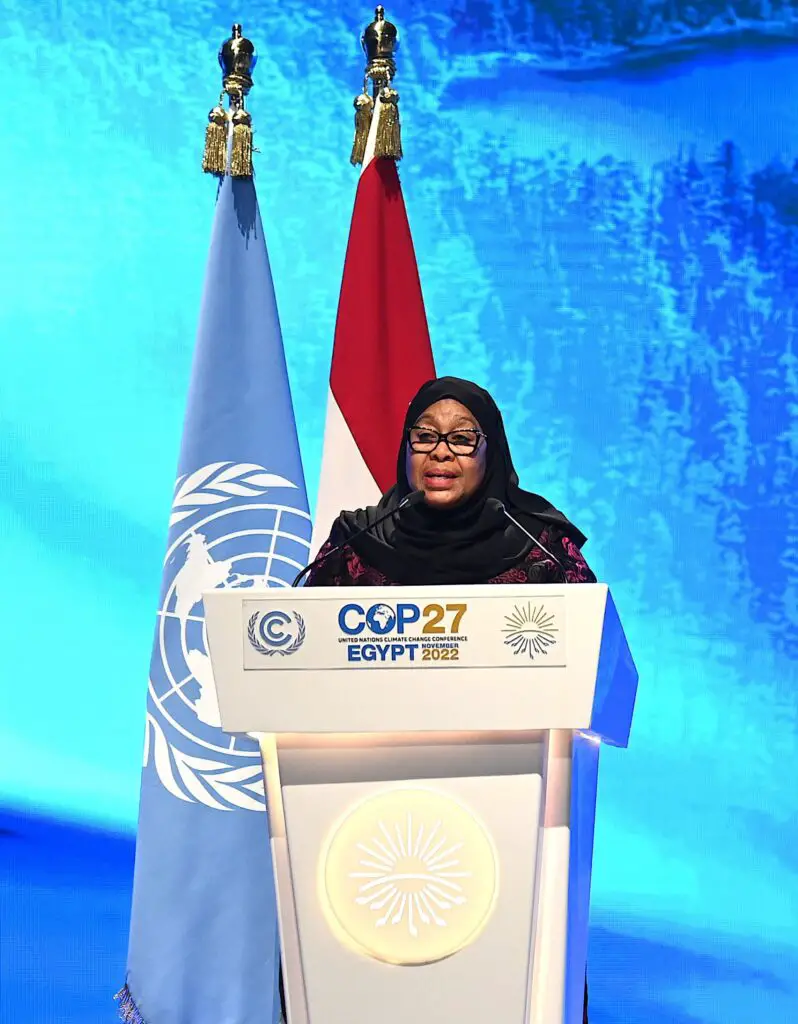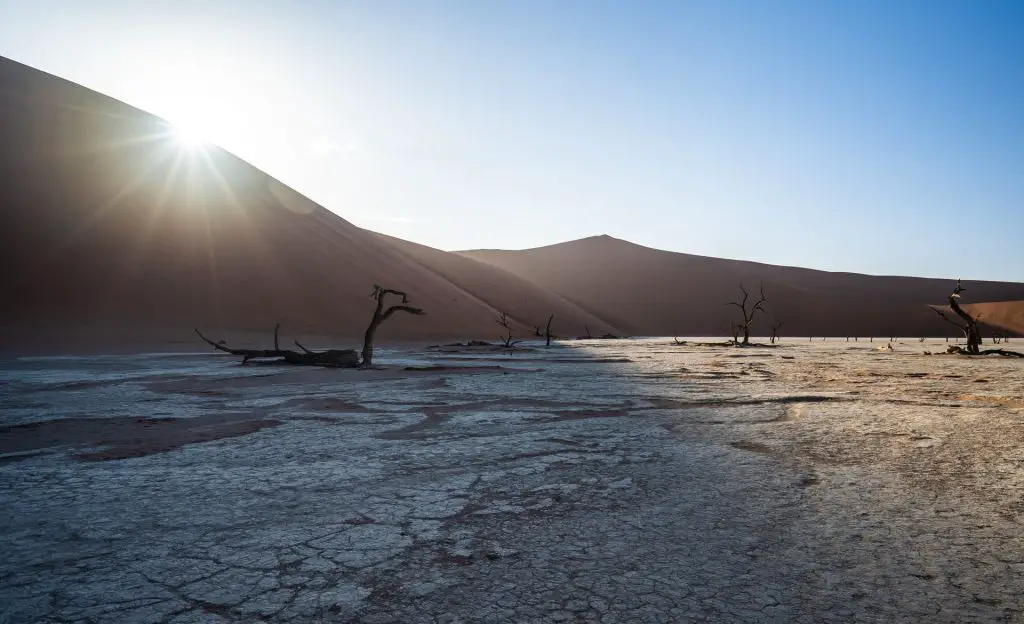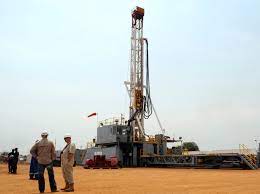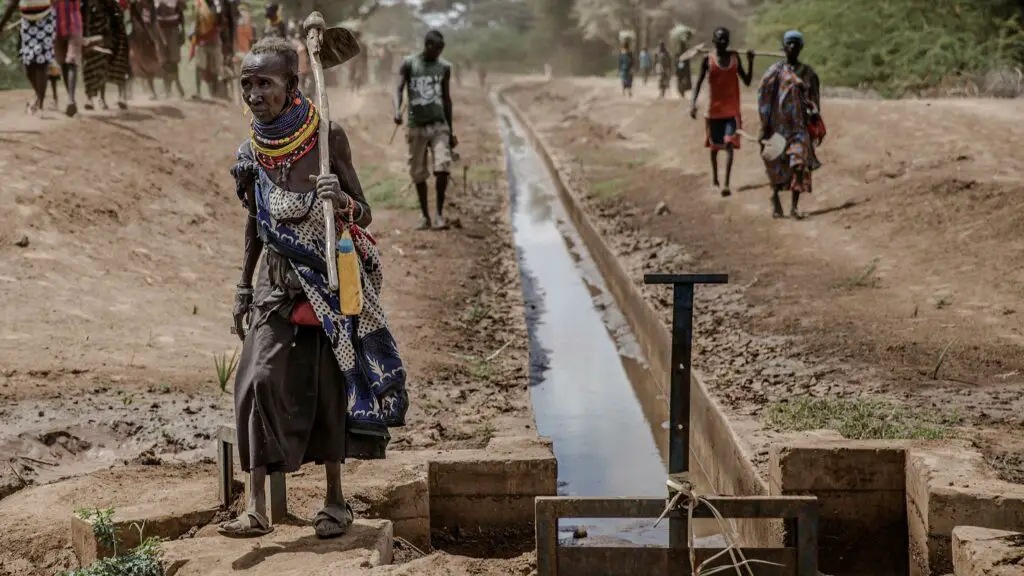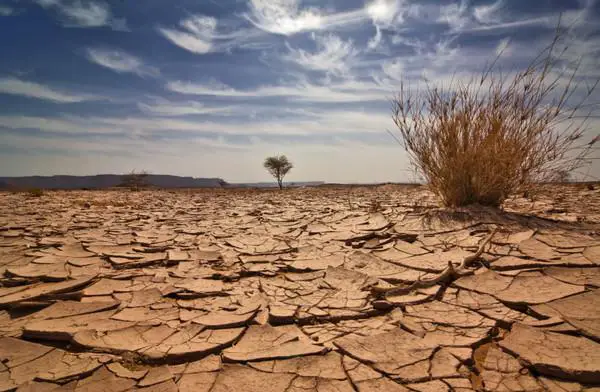- Dawood Al Shezawi: Why AIM Congress 2024 is the epicenter of global economic and cultural dialogues
- d.light’s 600,000 cookstoves project verified as top source of quality carbon credits
- Artificial intelligence (AI) could create a turning point for financial inclusion in Africa
- AIM Congress 2024: Catalysing global investments with awards
- Kenya’s economic resurgence in 2024
- The most stressful cities to live in 2024 exposed
- Tech ventures can now apply for the Africa Tech Summit London Investment Showcase
- State of journalism survey 2024 shows media houses are lagging in AI adoption
Browsing: Climate change in Africa
The continent as always, has great promise. This was the unanimous conclusion from the just-ended World Economic Forum, which is traditionally held at the Swiss resort town of Davos every year. However, significant obstacles stand in the way of the continent reclaiming its mantle of economic growth.
- The World Economic Forum held in Davos every has just ended. This year’s conference ran under the theme of Collaboration in a fragmented world.
- Africa was on the agenda of the World Economic Forum as is frequently the case.
- Discussions on Africa at the conference mainly centred on how the continent can regain its growth trajectory.
The World Economic Forum (WEF) identified four principal factors causing economic headwinds in Africa and will stall its economic growth as a continent unless dealt with. The so called “stallers” of Africa’s economic growth are and will remain as conflict, COVID, climate, and cost of living.
WEF …
Tanzania is now executing several energy projects, including the East African Crude Pipe Line Project (EACOP), which brought several international attention fighting its realization.
The widely followed meeting is occurring in the continent for the fifth time and attracting thousands of participants engaging in serious conversations that might lead to the realization of climate targets.
The 27th meeting of parties calls for moving from negotiations (which occurred in COP26) and “planning for implementation” for all these promises and pledges made (United Nations -UN).
As Samia presents the ambitious deal on behalf of a dozen southern African nations – the pressure lies upon the developed economies to jump in and support the common cause.…
Mapping “Adaptech”: introducing a multi-dimensional map of over 70 digital technologies for climate adaptation
Climate change adaptation has been a significantly underfunded area in low-income countries. At the United Nations Climate Summit in Copenhagen 2009, high-income countries made a pledge to provide US$100 billion per year to low-income countries to help them adapt to climate change and mitigate further rises in temperature. To date this amount of investment has not yet been reached in a single year. Among the investments that have been made, less than 30% have been applied to climate change adaptation with the majority of investments applied to climate change mitigation.
Climate change adaptation helps countries and their citizens to prevent catastrophic effects on lives and property from droughts, floods, cyclones, storms; sea-level rise, increased salination, as well as temperature fluctuations. Investments in climate change adaptation are not some theoretical forward-thinking issue, but can directly save lives …
- African nations are harnessing it’s push toward the oil and gas industry despite global push to reduce greenhouse gasses
- Oil-rich nations are keen to explore and pump out various fossil fuels as the rest of the world moves toward being Carbon Neutral
- COP 26 focused on resolutions for the world, but that was mainly the developed world, what about Africa?
Part 1: The fuel of modern-day civilization
The backdrop of modern-day development as embodied in Europe, America, Asia and the Arab Peninsula all lies in fossil fuel, crude oil, black gold. It is the burning of fossil fuels that runs our engines and powers our economies. Indeed, we owe our modern civilization and advances to fossil fuel.
Great! What is not so great is the cost that comes with burning fossil fuels. The primary cause of current climate change, altering the Earth’s ecosystems and causing human and environmental health problems …
Climate change in Africa costs a lot, and climate extremes hit the region hardest. Between 2014 and 2018, roughly $5 per year, a person was the adaptation funding to each African – standing on less than $5.5 billion per year (World Economic Forum).
It is more than fair to say without financial support, climate change will probably push Africa’s impoverishment to a whole new level, as millions of Africa might be into extreme poverty by 2030.
The latter proves Africa to be at a relatively disadvantageous position as it contributes the least to global emissions and climate change. Yet, it receives minor financial support towards adaption.
READ: COP26 All Talk, No Walk
The previous 26TH United Nations (UN) Climate Change Conference of the Parties (COP26), dubbed “the world’s best last chance”, provided the global stage with failure.
Despite promising to double funding, high-income countries (and high global emitters) failed …
- The World Bank Board of Directors has approved a US$150 million to support locally-led climate resilience projects in all rural wards in Kenya
- The program’s development objective is to deliver locally-led climate resilience actions
The World Bank Board of Directors has approved a US$150 million International Development Association (IDA) credit to support community identified and locally-led climate resilience projects in all rural wards in Kenya.
In a statement, the organization says the resources will be channelled through the new Financing Locally–Led Climate Action (FLLoCA) Program.
The program’s development objective is to deliver locally-led climate resilience actions and strengthen county and national governments’ capacity to manage climate risks.
“Kenya has demonstrated leadership in establishing a policy framework to manage climate risk though climate action is still underfunded.” said Keith Hansen, World Bank Country Director for Kenya.
“This financing will support the Government of Kenya meet its climate commitments to increase financing …
Nature hurts economies, and if such economies are not well equipped to handle the aftermath of flooding, famine, water scarcity, or food insecurity—the more shocking realities are bound to come.
Climate change is real and it hurts African economies, and the region is being slapped with a heavy price to pay, amid its struggle to mark sustainable development.
According to a 2018 report by The Conversation, in the same year—almost 10,000 homes were wiped off the ground by floods, displacing nearly 2 million people in Africa up to September 2018.
In East Africa, Tanzania losses nearly $2 billion in damage from floods according to a report published by Nature Climate Change in 2017.
As the least emitter of greenhouse gases, Africa stands to lose a lot in this battle, with climate action funding coming in short and countries such as the United States of America and China tiptoe on taking …





